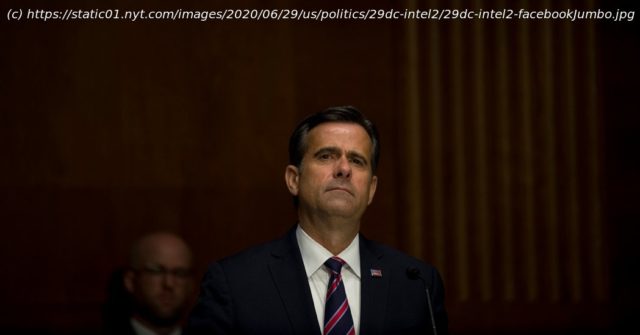The investigation into Russia’s suspected operation is said to focus in part on the killings of three Marines in a truck bombing last year, officials said.
American officials provided a written briefing in late February to President Trump laying out their conclusion that a Russian military intelligence unit offered and paid bounties to Taliban-linked militants to kill U. S. and coalition troops in Afghanistan, two officials familiar with the matter said.
The investigation into the suspected Russian covert operation to incentivize such killings has focused in part on an April 2019 car bombing that killed three Marines as one such potential attack, according to multiple officials familiar with the matter.
The new information emerged as the White House tried on Monday to play down the intelligence assessment that Russia sought to encourage and reward killings — including reiterating a claim that Mr. Trump was never briefed about the matter and portraying the conclusion as disputed and dubious.
But that stance clashed with the disclosure by two officials that the intelligence was included months ago in Mr. Trump’s President’s Daily Brief document — a compilation of the government’s latest secrets and best insights about foreign policy and national security that is prepared for him to read. One of the officials said the item appeared in Mr. Trump’s brief in late February; the other cited Feb. 27, specifically.
Moreover, a description of the intelligence assessment that the Russian unit had carried out the bounties plot was also seen as serious and solid enough to disseminate more broadly across the intelligence community in a May 4 article in the C. I. A.’s World Intelligence Review, a classified compendium commonly referred to as The Wire, two officials said.
A National Security Council spokesman declined to comment on any connection between the Marines’ deaths and the suspected Russian plot. The White House press secretary, Kayleigh McEnany, did not answer when pressed by reporters on Monday whether the intelligence was included in the written President’s Daily Brief, and the security council spokesman pointed to her comments when asked later about the February written briefing.
Late Monday, John Ratcliffe, the recently confirmed director of national intelligence, issued a statement warning that leaks about the matter were a crime.
“We are still investigating the alleged intelligence referenced in recent media reporting, and we will brief the president and congressional leaders at the appropriate time,” he said. “This is the analytic process working the way it should. Unfortunately, unauthorized disclosures now jeopardize our ability to ever find out the full story with respect to these allegations.”
The disclosures came amid a growing furor in Washington over the revelations in recent days that the Trump administration had known for months about the intelligence conclusion but the White House had authorized no response to Russia.
Top Democrats in the House and Senate demanded all members of Congress be briefed, and the White House summoned a small group of House Republicans friendly to the president to begin explaining its position.
The lawmakers emerged saying that they were told the administration was reviewing reporting about the suspected Russian plot to assess its credibility, and that the underlying intelligence was conflicting, echoing comments from Ms. McEnany that the information in the assessment had not been “verified” because, she said without detail, there were “dissenting opinions” among analysts or agencies.
“There was not a consensus among the intelligence community,” Ms. McEnany said. “And, in fact, there were dissenting opinions within the intelligence community, and it would not be elevated to the president until it was verified.”
But in denying that Mr. Trump was briefed, administration officials have been coy about how it is defining that concept and whether it includes both oral briefings and the President’s Daily Brief.
Start
United States
USA — mix Trump Got Written Briefing in February on Possible Russian Bounties, Officials Say






